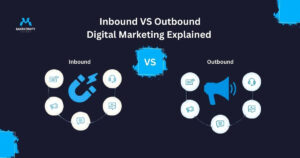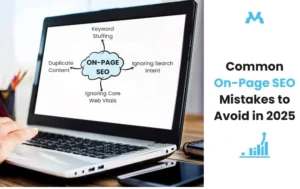What Is SEO and How Does It Work in 2025?
SEO ( search engine optimization) is a process of improving the quality and the quantity of website traffic to a website or a web page from search engines. The goal of seo is to make a write more visible and rank higher in unpaid, organic search results. Still you wonder Why Your Website Isn’t Ranking and What to Do About It?
You’ve written helpful content, chosen keywords carefully, and maybe even built a few backlinks. But your traffic? Flat. Your rankings? Stuck on page two.
Sound familiar? That’s because SEO in 2025 plays by a new set of rules.
In today’s digital landscape, Search Engine Optimization isn’t just about being searchable it’s about being trustworthy, usable, and valuable. If your content doesn’t answer real questions or engage the right behaviors, search engines will quietly push you aside no matter how good your offer is.
This article breaks down what SEO really means in 2025, why outdated tactics no longer work, and how you can update your strategy to reach the audience that’s already looking for you.
Let’s start with the basics and then go much deeper.
Success in SEO is Now Depends On Understanding Not On Stuffing
Search Engine Optimization (SEO) used to be about matching keywords. Today, it’s about matching intent search engines such as. Google, Bing, and emerging are powered by AI that evaluates how content behaves, not just what it says.
Search engines want to know:
- Did the user stay on your page?
- Did they interact or bounce?
- Did your content actually solve their problem?
That’s the new gold standard
How SEO Works in 2025
Understanding how SEO works in 2025 starts with understanding how search engines evaluate content in real-time. Gone are the days of ranking for keywords just by stuffing them into your title.
What Search Engines Analyze Today:
- Search intent alignment (what the user actually wants)
- Experience-based trust (authorship, clarity, interaction)
- Content structure (headings, schema, internal linking)
- Engagement metrics (scroll time, click-through, bounce)
- Page experience (load speed, mobile responsiveness, HTTPS)
If your page loads slowly, isn’t skimmable, or doesn’t satisfy curiosity quickly, it won’t matter how “optimized” it is.
On-Page SEO: More Than Just Keywords
Your title tag still matters. But now it’s only the start.
To rank well in 2025, each page must deliver value in structure as much as in content.
How to Improve On-Page SEO in 2025
- Use semantic clusters of related keywords (not just one target phrase)
- Add FAQs, subheadings, images, and lists for clarity
- Implement internal linking to reduce bounce
- Write in a natural, conversational tone (especially for voice search)
- Include clear CTAs within your content
The better your page satisfies the reader’s curiosity, the more search engines reward you.
Technical SEO Still Matters (Now More Than Ever)
If your site’s backend is broken, bloated, or confusing to crawl, Google will find outand penalize you quietly.
Technical SEO Checklist for 2025:
- Core Web Vitals (CLS, LCP, FID)
- Mobile-first indexing (mobile > desktop priority)
- Secure connections (HTTPS, SSL)
- Sitemap and robots.txt optimization
- Schema.org markup for context and visibility
- Fast, responsive design (under 2.5s load)
SEO in 2025 is built for humans first, robots secondbut those robots still read your code.
SEO and AI: The Age of Generative Search
Google’s Search Generative Experience (SGE) and AI chat-based engines (like Bing Chat and Perplexity AI) are rewriting how information is surfaced.
How AI Search Changes the Game
- Position 1 is no longer the top spot; AI answers often come first
- Rich content summaries from AI pull directly from well-structured content
- Searchers may never leave the results page unless they see unique, human insight in your listing
To adapt, focus on originality, depth, and clarity. Write for real peoplebut format it for machines.
Voice & Visual Search Optimization
With the rise of voice search and smart lenses, your content must be designed for how people talk and search naturally.
Tips for Voice & Visual SEO:
- Use conversational phrases (“how do I,” “what is the best way to”)
- Add alt text to every image
- Make your answers brief and structured for zero-click search
- Optimize for featured snippets using bullet points and headers
Being useful across multiple search formats increases your discoverability dramatically.
The Right Tools for SEO in 2025
Want to stay ahead? These are the must-have tools every marketer needs in their SEO toolkit this year:
- Google Search Console – Crawl issues, performance metrics, search queries
- Semrush / Ahrefs – SERP tracking, keyword clusters, backlinks
- SurferSEO – Content scoring based on NLP and ranking data
- Frase / Clearscope – Semantic optimization for long-form content
- Screaming Frog – Deep technical audits and crawl maps
- PageSpeed Insights – Page speed and Core Web Vitals data
Schema.org Generator – Easy structured data implementation
Final Takeaway
SEO in 2025 is no longer a checklist it’s a trust-building system that runs through your content, tech, voice, and intent.
If you’re still writing for robots, you’ll get outranked by those writing for humans with technical precision.
So stop guessing. Stop keyword stuffing. Start building clarity, value, and structure into everything you create.
Your audience is already searching for you SEO just helps them find you faster.
Call to Action
Ready to future-proof your SEO strategy?
Start by auditing your site’s content experience, not just its keywords.
If you’re not ranking, you’re not failing, you’re simply not adapting fast enough.
Need help modernizing your SEO content, structure, or visibility?
Let’s fix it together. Contact us today for a free site audit or SEO consultation.
FAQs: What No One Is Telling You About SEO in 2025
How long does it take to rank on Google in 2025?
On average, 4 to 8 months but it depends on content quality, domain trust, technical setup, and competition. Ranking fast is possible if you solve an underserved query better than anyone else.
What’s the biggest SEO mistake in 2025?
Ignoring search intent. Writing content just to rank, without truly satisfying the reader’s need, causes bounce and devalues your page in the eyes of Google’s AI systems.
Does AI-generated content rank on search engines?
Only if it’s edited, personalized, and high-quality. Search engines penalize thin, repetitive, or non-human-sounding content. AI is a tool not a substitute for relevance.
Can SEO work without a blog?
It can, but not well. Blogs allow you to rank for informational and long-tail queries, build internal links, and demonstrate topical authority all critical for SEO success.
Why does my content never get featured in AI summaries or snippets?
Because your answers may not be concise, structured, or cited correctly. Use bullet points, H3 headings, schema, and short-form summaries to increase the chances of being pulled into AI results or featured snippets.



